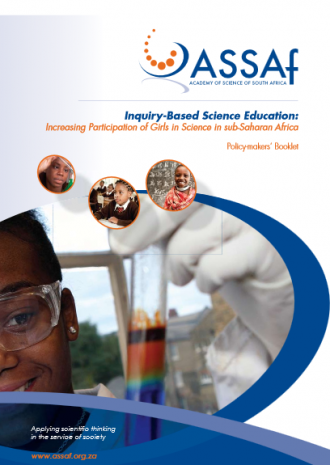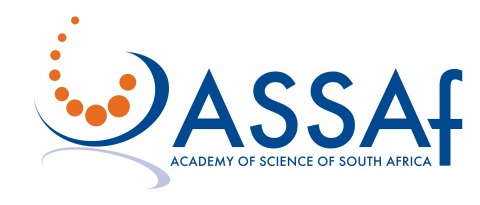The booklet is a product of the workshop on Inquiry-Based Science Education (IBSE) organized by the Academy of Science of South Africa (ASSAf) in partnership with NASAC, the Organisation of Women Scientists for the Developing World (OWSDW) and the Gender Advisory Board of the United Nations Commission on Science and Technology for Development (UNCSTD) in Pretoria, in May 2010. The workshop brought together various science education specialists from Africa, France and Australia. Participants explored ways to encourage girls and young women to enter into science at school and later into science careers and how to increase the participation of girls in science education.
The policymakers’ booklet aims to promote Inquiry-Based Science Education (IBSE) as a pedagogical method for teaching science and especially as a way to encourage girls to enjoy science. In IBSE, learners are encouraged to learn through exploring, discovery and investigation, and there is a connection between the process of learning and the learner’s home environment in a way that children are able to identify with the learning process.
Access to basic quality education for most of sub-Saharan Africa’s children remains a challenge, with the majority of children not attending school being girls. Educating girls in sub-Saharan Africa is critical to achieving the Millennium Development Goals (MDGs), especially those associated with improved maternal health, universal primary education, and reducing acute poverty in the region. The booklet lays specific emphasis on the importance of ensuring access to IBSE methods for girls in the sub-Saharan Africa region.
Key messages for policymakers
- Policy-makers should endorse the integration of IBSE into the school curricula, and support pilot projects to introduce IBSE into schools.
- Policy-makers should lobby for implementation of IBSE in training institutions, and approve financial and other resources for developing teachers on IBSE.
- Policy-makers should lobby for gender mainstreaming in science and mathematics teaching, advocate increased career guidance for girls on science careers, and encourage implementation of role model and mentoring programmes aimed at girls.

